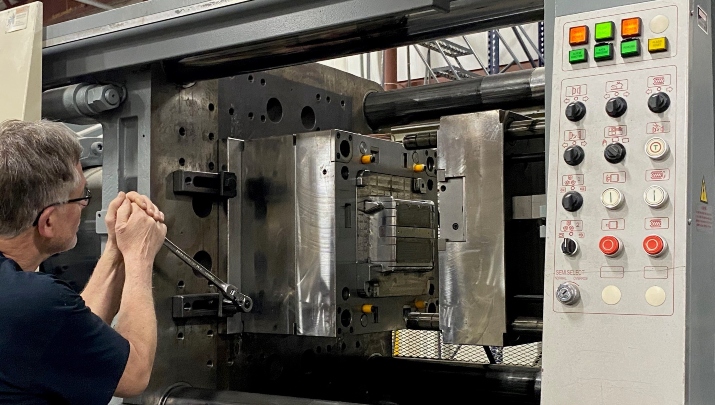

Partners At Work & Home: Insight Into Building An Evergreen Company With Your Spouse
- Diana Price
- Tugboat Institute
When Dan and Tracey Pilone made the decision to cofound their software company, Element 84, they had a good sense of how their skills and character traits would complement one another in a work setting.
The couple had co-written two textbooks—one on algebra (Tracey has master’s degree in education) and one on iPhone applications (Dan’s a computer scientist)—and that experience offered an early glimpse into their professional compatibility.
“The experience of co-authoring the books was really a microcosm of everything that came after,” Dan says. “For both books, we put a plan together, executed the project, and were able to see how our work habits and patterns allowed us to be an effective team.”
Where Dan admits to going all in on an idea from the beginning and being prone to all-nighters, Tracey is more cautious, methodical, and process oriented. That balance has served the couple well over the 11 years they have led Element 84, growing the company from five to over 50 employees.
Today, Tracey serves as President, leading business operations, and Dan is CEO/CTO, running the technology side of the company. The couple has two teenage children, and they are continually navigating the shared responsibilities of business and family. As they reflect on their decision to found and lead a company together, both are aware of the lessons they’ve learned the hard way in creating a successful partnership at home and at work—and the gifts of the experience.
Two Different Approaches To Risk Have Promoted Sustained Growth
Dan is more risk tolerant than Tracey is and says that he generally approaches things with the perspective of, ‘how hard could it be?’. He gets passionate about projects and tends to be ready to jump right in.
Tracey’s instinct to ask the important questions and think through the long-term consequences of decisions is an important counter to Dan’s enthusiasm. When there’s a new opportunity that they want to go after together, and Dan is ready to dive in, Tracey will ask: “Is this sustainable? How are we going to grow this?” She lives in the details of execution.
In describing the benefit of the balanced approach of their leadership, Dan says, “I like thinking of us as the balloon and the string—I’m the balloon and Tracey is the string, grounding us. That partnership dynamic lets me reach a little further than I would be able to otherwise, and she probably executes more caution than she might without my buoyancy. Together, at the end of the day, we end up somewhere in the middle, which allows us to continually drive the company forward in a sustainable way.”
Creating Clear Boundaries Around Work And Home Life is Essential
Dan and Tracey have worked to create clear guardrails around work and home life, a lesson they initially learned the hard way.
The couple learned early on that they would need to establish boundaries around bringing work into life at home; otherwise, work would consume them. Over time, they found that designating specific physical spaces at home where they would discuss work (in their home office or outside) and keeping the other areas in their home dedicated to personal and family life created a helpful separation.
Early experience also led to a discussion around how and when to introduce potentially stress-inducing work topics that arise after hours. “Tracey has had to tell me to stop reviewing contracts and emails on my iPad in bed because if I see something that’s newsworthy, she’s going to see it all over my face, which is not a good thing at 11 p.m.” If something comes up after the couple is home, they will often email the other person so it can be handled the next day instead of starting a conversation.
One practice that has helped Dan and Tracey avoid spillover of work into home life has been to schedule a weekly standing meeting. While that might be obvious for co-founders who don’t live together, creating scheduled, structured time allows them to compartmentalize and set an effective agenda. Instead of a continual, ongoing conversation about work that can seep into family time, they have established discipline that makes those conversations more efficient and leads to more effective planning and action.
Setting clear expectations around family travel to ensure they are actually able to have time off together has also been an important lesson. After one week-long vacation early on that Tracey describes as “a train wreck,” in which they both worked 40 hours, the couple now plans ahead to set clear guidelines for if and how work will factor. If Dan is planning to check work email early each day, he’ll let Tracey know, and Tracey will be clear about what, if any, information she wants to be made aware of during the time away.
Modeling Effective, Transparent Communication Has Enhanced Company Culture
As a couple, Dan and Tracey appreciate engaging in respectful debate and offering one another constructive feedback, which they have modeled in team discussions from the beginning. For Dan, receiving feedback and engaging in productive debate is actually key to his decision-making process.
“Tracey and I interact this way with each other in meetings—as we do at home—openly disagreeing at times but always open to the other’s perspective. I think people who are new to the team sometimes sit back and wonder what’s going to happen, but what they ultimately realize is that it’s a productive dynamic at our company, and setting that precedent offers other people in the company permission to engage in that way. We’ve modeled that we can disagree, but at the end of the day, we’re going to reach consensus and respect and support the final decision.”
In fact, if the couple cannot reach consensus about a decision, they engage the leadership team in the discussion, providing valuable objective perspective. Developing a leadership team that can serve in that capacity and help provide support and expertise across the company has been essential in growing the business he and Tracey started as a team of two.
In addition to ensuring the leadership team plays a role in decision making, Dan and Tracey have also implemented a culture and specific processes to make sure employees feel safe to offer feedback or to address issues that might arise. The company has an email application that allows for anonymous suggestions or concerns, and they conduct an annual survey managed by an external provider, which creates a formal feedback loop on a regular cadence. In addition to those formal processes, both Dan and Tracey have made themselves available and open to receiving feedback about the other and addressing any concerns that arise.
Shared Victories And Flexible Work Enhance Family Life
While there are inevitable challenges in sharing a company and a family, Tracey says that the benefits and joy of the experience outweigh the challenges. “When we started the company, our kids were young. I was freelancing at the time, and I wanted to maintain a flexible schedule, so we baked that into the company. I think our kids benefitted from that early choice, and there’s no way I would have had the career I’ve shaped for myself without having started our own company.”
The benefit of being a flexible, present parent has been enhanced by the experience of celebrating company wins as a family. When the company earns a new contract or experiences another success, bringing that accomplishment home to celebrate together is a special, shared experience.
Dan says that building something together has been a gift. “I could not have created Element 84 the way that we did it with anybody else. To be able to work on this thing that you care passionately about, and which takes so much energy, with my best friend has been amazing. I could not have been as invested in it with anybody else. It just wouldn’t be the same.”
Dan and Tracey Pilone are Co-founders of Element 84, Inc.
More Articles and Videos

Fireside Chat with Dave Thrasher, Dan Thrasher, and Dave Whorton
- Dave Thrasher, Dan Thrasher, & Dave Whorton
- Supportworks and Thrasher Group

Get Evergreen insight and wisdom delivered to your inbox every week
By signing up, you understand and agree that we will store, process and manage your personal information according to our Privacy Policy






